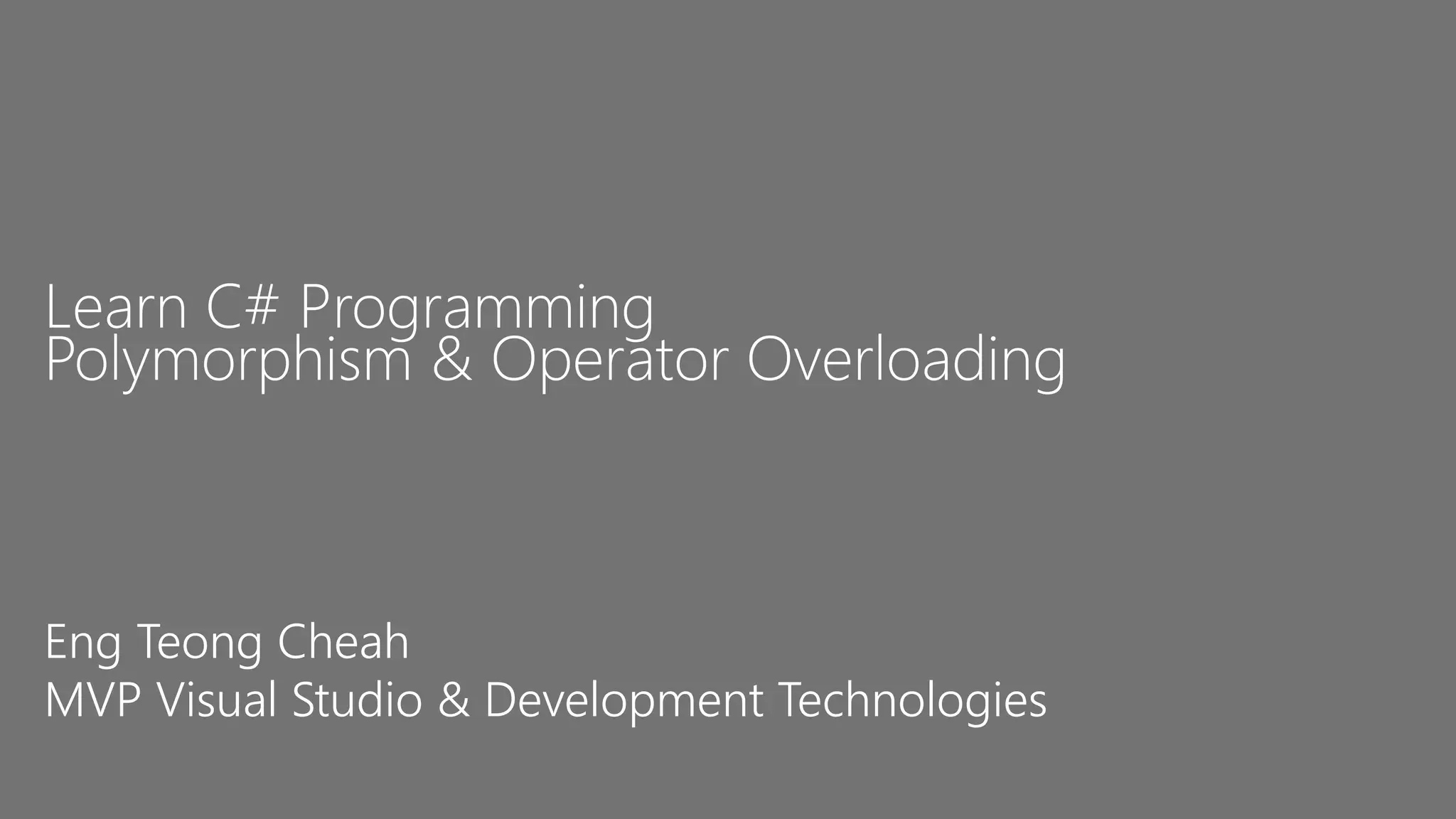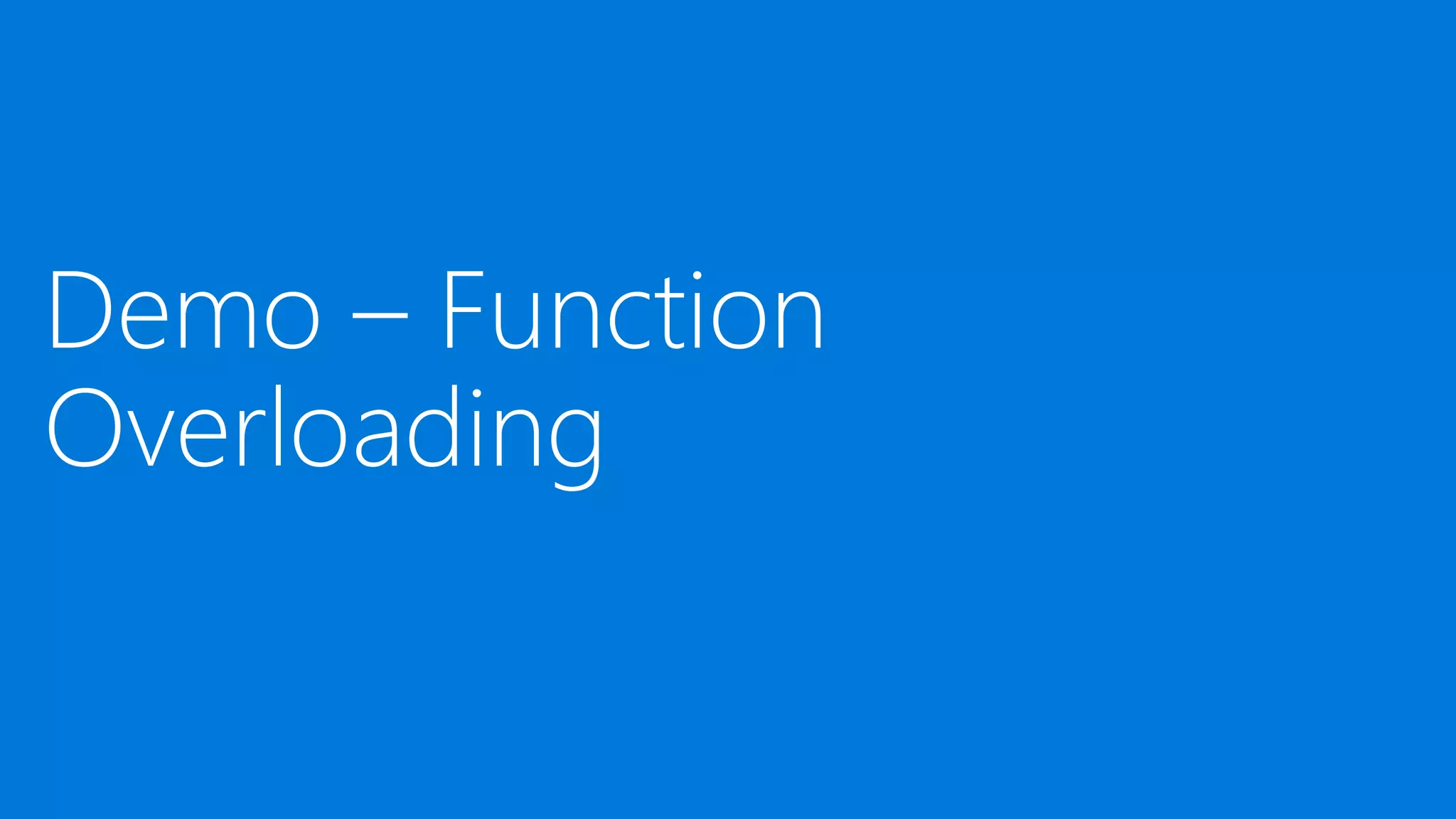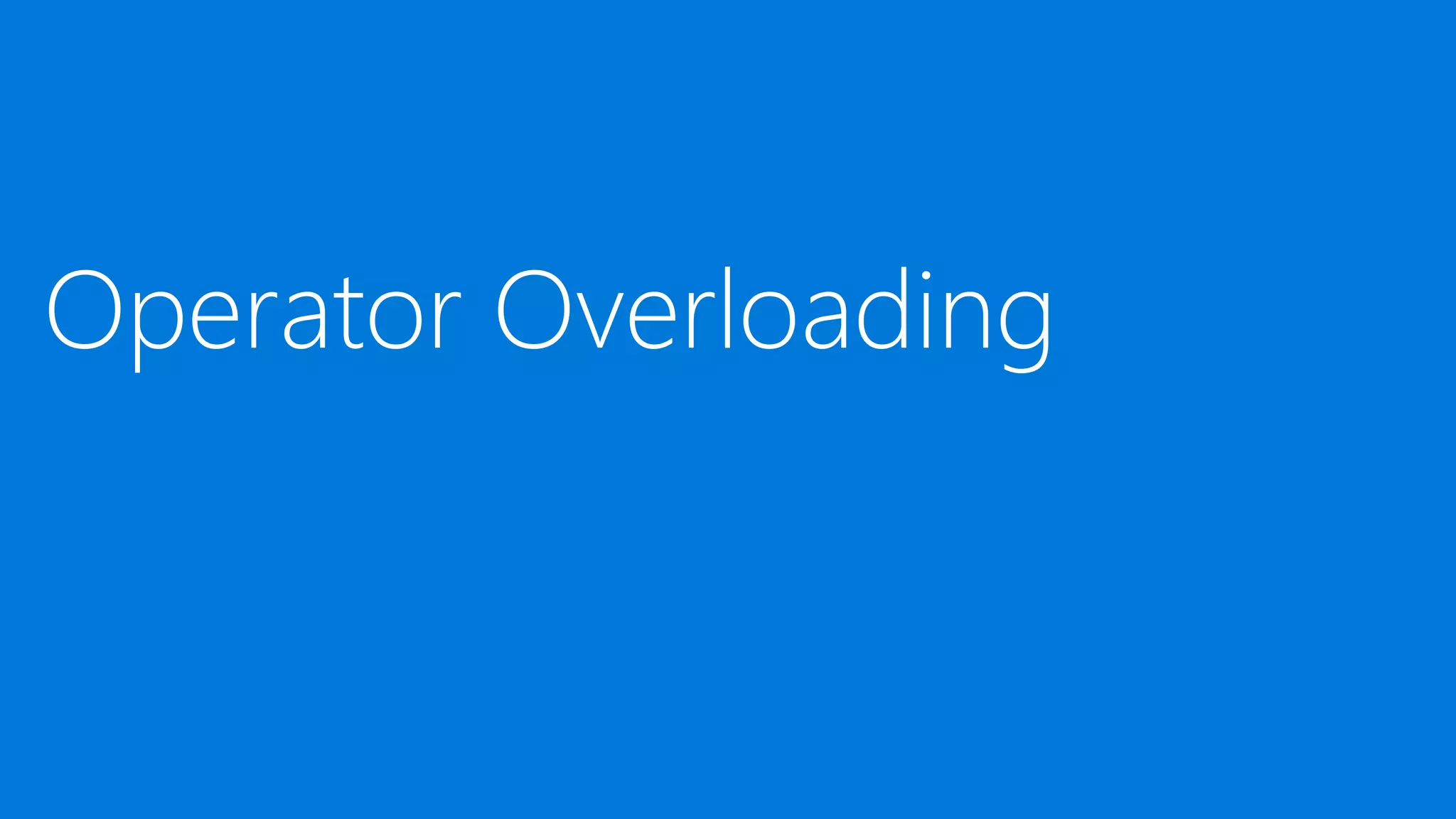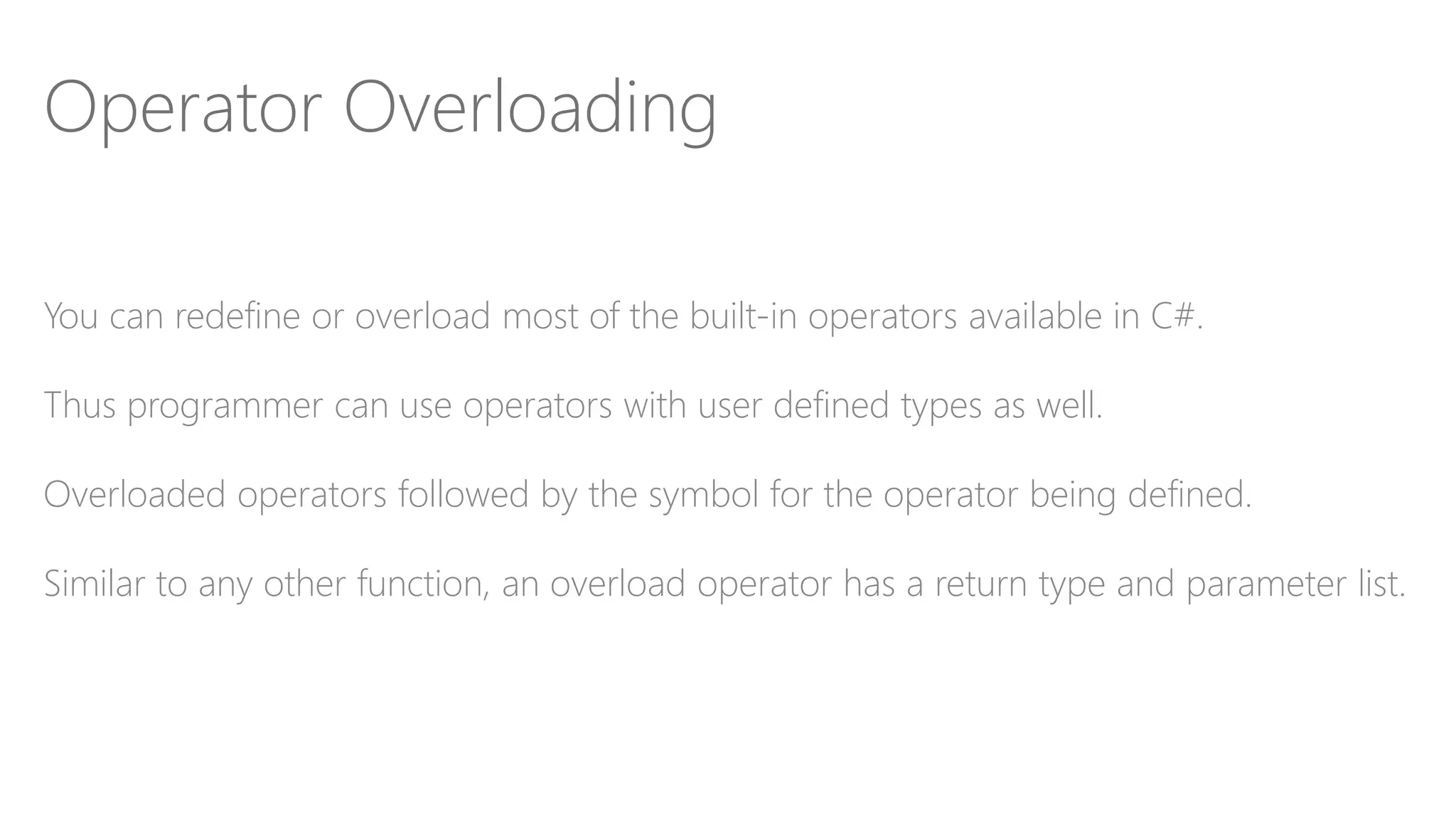This document discusses polymorphism and operator overloading in C#. It defines polymorphism as having many forms, and describes static and dynamic polymorphism. Static polymorphism uses function and operator overloading at compile time, while dynamic polymorphism uses abstract classes and virtual functions to determine behavior at runtime. Function overloading allows multiple definitions of the same function name, differing by type or number of arguments. Operator overloading allows redefining operators for user-defined types. The document provides examples of function overloading, dynamic polymorphism using abstract classes and virtual functions, and operator overloading.


















